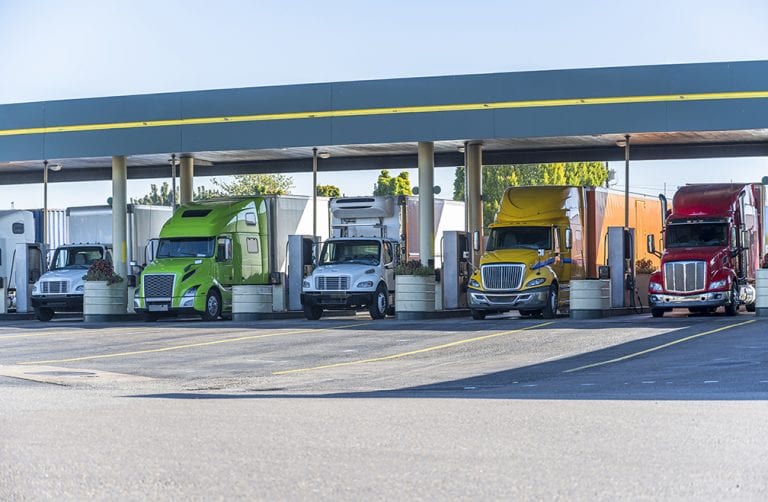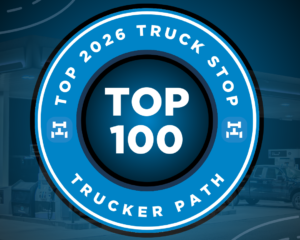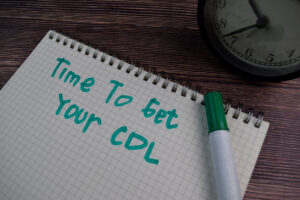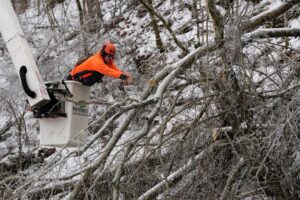DENVER — A coalition of lawmakers, municipal officials and business interests have thrown their support behind an ambitious proposal to tackle Colorado’s years-long struggle to pony up billions of dollars for its aging transportation infrastructure — and plan for the future.
With weeks to go in the 2021 legislative session, Colorado’s Democratic Gov. Jared Polis joined legislators and others to introduce a bill that would raise billions of transport dollars by imposing new gas and diesel fees on drivers, fees on electric vehicle registrations, and fees on deliveries and rideshare services.
The Colorado Sun reports the fees would raise roughly $3.8 billion over the next 10 years. General fund spending would raise the total to more than $5.3 billion.
For years, lawmakers have struggled to find funding for an estimated $9 billion backlog in state infrastructure projects and maintenance. A major reason: Colorado’s 22 cents-per-gallon gasoline tax, used to pay for highway funding, hasn’t changed since 1992.
Republicans generally have favored bonding, while interest rates are low, for projects that focus on increasingly congested roads and aging bridges. Democrats have advocated for solutions designed to ease the growth of traffic by emphasizing public transit and other commuter options. Voters repeatedly have said “no” to ballot initiatives proposing sales tax hikes or issuing new bonds.
The new bill addresses both roads and so-called “multimodal” transit funding of public transport and other projects as well as the increasing electrification of the U.S. motor vehicle market and proposals for a commuter rail line that would serve the Front Range from New Mexico to Wyoming. It would allocate funds to mitigate severe air pollution generated by traffic in certain urban areas.
“This is the year we will make it happen,” Democratic Senate Majority Leader Steve Fenberg said at a Capitol news conference May 4 that was attended by Polis and bill supporters.
The bill:
- Would impose gas and diesel fees at 2 cents per gallon in July 2022, increasing 1 cent each year to 8 cents.
- Impose a 27-cent fee for deliveries.
- An annual $50 fee for electric vehicle owners would increase to up to $159.
- Enact a new 30-cent fee for each ridesharing trip in 2022. The fee is 15 cents for carpooling or electric vehicle trips.
- Some $1.5 billion would come from the Legislature’s discretionary spending fund.
John Suthers, the Republican mayor of Colorado Springs, Colorado, and a former attorney general, threw his support behind the plan, emphasizing the longstanding and continuing cost to Colorado’s economy of delayed action.
“While I personally would prefer perhaps a greater contribution of general fund, or more money into highway construction and less into multimodal, I’m a political realist and I understand political compromise,” Suthers said. “And I don’t see a better package coming through the Legislature or the voters anytime soon.”
The conservative advocacy group Americans for Prosperity Colorado has long protested a fee-based plan as an attempt by Democrats to evade the Taxpayer’s Bill of Rights, a constitutional amendment that, in part, requires voter approval of tax increases. The group is pushing a ballot initiative to ask voters to reduce the gasoline tax as a response to the infrastructure bill.
And some Republicans, including state Sen. Ray Scott, argue that imposing fees at a time when residents are struggling financially during the coronavirus pandemic makes no sense. Scott told a recent Sun forum on transportation that Colorado should devote $4 billion in federal coronavirus relief funds for the state to its infrastructure needs.
The bill has been assigned to the Senate Finance Committee for its first hearing.
The Associated Press is an independent global news organization dedicated to factual reporting. Founded in 1846, AP today remains the most trusted source of fast, accurate, unbiased news in all formats and the essential provider of the technology and services vital to the news business. The Trucker Media Group is subscriber of The Associated Press has been granted the license to use this content on TheTrucker.com and The Trucker newspaper in accordance with its Content License Agreement with The Associated Press.











